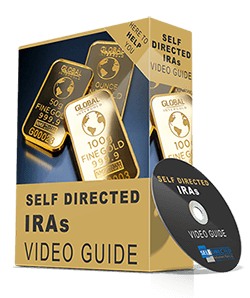401(k)s are tax-advantaged retirement savings accounts, and many Americans pour money into them every year. Generally, if you withdraw from your 401(k) before age 59 ½, you are likely to attract income tax and a 10% penalty on the amount that you withdraw, in addition to any relevant state income tax.
Sometimes unplanned circumstances can force you to withdraw funds from it early. If you are planning to withdraw from your 401(k), keep in mind the following important rules and consequences around 401(k) withdrawals.
When Can You Withdraw From 401(K)
You can withdraw from your 401(k) after age 59 ½ without any penalty. After age 72, the IRS requires you to make withdrawals from your 401(k). These withdrawals are called Required Minimum Distributions (RMDs).
401(K) Early Withdrawal
Early withdrawals from a 401(k)-retirement account can be an expensive deal as it attracts hefty penalties. Here, we’ll discuss how different rules apply to different ages for 401(k) withdrawals:
Withdraw from 401(k) before age 55
If you are below 55 and still working for a company that manages your 401(k), you have two options for accessing your 401(k) money (assuming your employer offers these options): take a 401(k) loan, or take a hardship withdrawal.
If you are younger than 55 and no longer employed by the company that offered your 401(k), you can either rollover the funds to an IRA or another employer’s 401(k) plan.
Withdraw from 401(k) between 55 and 59 ½ years
If you are age 55 and have left your job no earlier than the year you turn age 55, then according to the Rule of 55, you can make penalty-free withdrawals, provided you still have funds in your retirement account.
What is the Rule of 55?
The IRS allows those age 55 or older to make penalty-free withdrawals from their 401 (k) early. This rule applies to those who leave their employer, either voluntarily or involuntarily.
The Rule of 55 won’t apply:
- If you retire in the year before you turn 55. In this case, if you make a withdrawal, it will be subject to a 10% early withdrawal penalty tax.
- If you roll your 401(k) plan over to an IRA. You need to be 59 ½ to withdraw funds from a traditional IRA account without a penalty tax.
Withdraw from 401(k) after ages 59 ½ to 72
Withdrawing from your 401(k) funds after age 59 ½ depends on these two factors:
- Still working?: If you are still working, you can withdraw from the 401(k) plan after you reach age 59 ½. But, if you have changed jobs, you may not have the same access to the funds at your current company.
- Retired?: If you are retired and ended your employment after age 55, you can withdraw funds from your 401(k) at age 59 ½ without paying the penalty for early withdrawal. However, your plan should still have funds in it. Moreover, if you have rolled your 401(k) funds into an IRA, you can withdraw the funds as early as age 59 ½ without paying the penalty.Also Read: Withdrawals From 401k After Age 59 Taxed
Withdraw 401(k) post the age of 72
As of 2021, RMDs begin at age 72. You have to take your first RMD from all your tax-deferred retirement savings plans, like 401(k)s, by April 1 of the year after you reach 72 if you turned 70 ½ in 2020 or later. The SECURE ACT TWO is in the works and will raise the age to 73 by Jan 2022.
If you are still working with the company that manages your 401(k), you might have an exception to RMDs. So, get in touch with the 401(k) plan administrator to find out whether you are eligible for this exception.
A 401(k) is an excellent investment tool when you follow all the rules that come with it. If you have questions about 401(k) no penalty withdrawal or need more information on how to take full advantage of your 401(k) plan, contact us for expert help.

Rick Pendykoski is the owner of Self Directed Retirement Plans LLC, a retirement planning company based in Goodyear, AZ. He has over three decades of experience working with investments and retirement planning, and over the last ten years has turned his focus to self-directed ira accounts and alternative investments. If you need help and guidance with traditional or alternative investments, call him today (866) 639-0066.




